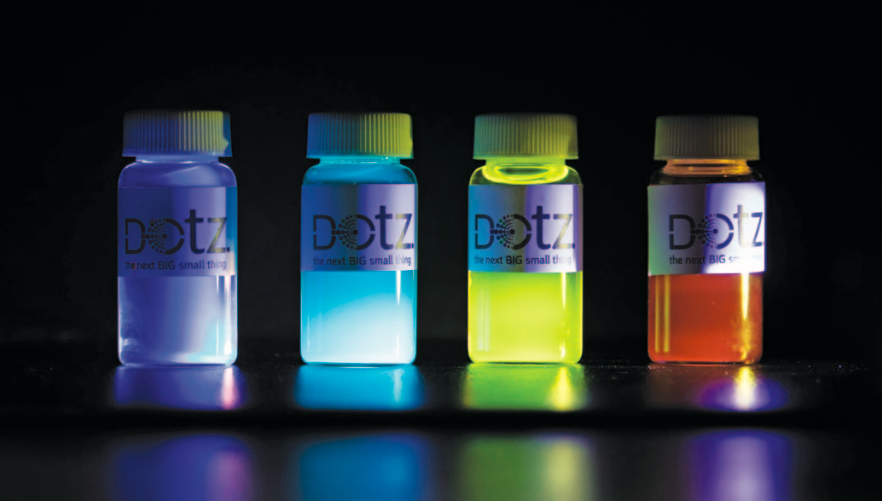Dotz wants to use nanomaterials to make our lives a little bit brighter
One of the most exciting areas of technological development is in the area of nanotechnology and nanomaterials. This area of innovation, which involves creating new molecules and materials at the nano level (10−9 meter – i.e really really small), is opening the doors for all kinds of interesting possibilities.
I’ve been hearing about nanomaterials for a while now, and much of the early talk I heard focused on carbon, specifically in tube and ball form. You have probably heard these mentioned somewhere in a discussion about carbon nanotubes, fullerenes, or as they are sometimes called Buckyballs.
Why Buckyballs? This whole area of nanotech, which includes carbon molecules that take on a sphere or tube shape, is influenced by the work of Buckminster Fuller, whose famous geodesic domes inspired the original creators of spherical carbon molecules.
Carbon nanotubes and fullerenes have been promised to usher in all kinds of new uses. The one that captured my imagination involved using nanotubes unique tensile strength to allow it to serve as the building block of a space elevator. While it looks like nanotubes aren’t going to get us into space anytime soon, other nanomaterials are emerging with what seems like an unlimited number of applications.
I recently came across a new nanomaterials company, that is specializing in the creation, distribution and licensing of graphene quantum dots. What’s a quantum dot (QD)? In the absolute simplest terms, it’s a “nanoscale particle of semiconducting material.” What’s more important, is that various types of QDs are being explored right now for use in everything from TV sets, to batteries, and more. Their unique properties, based on their incredibly small size, mean these materials can be used to enhance a number of different technologies.

Dotz Nano Ltd. is new company that is focusing specifically on graphene (another form of carbon) quantum dots. This is quite different than most other players in the space which are focused on metallic QDs using materials such as lead, cadmium, and arsenic. Dotz, on the other hand, by turning to graphene is using a non-toxic material that is sourced from an abundant natural source – coal.
“We’ve managed to revolutionize the nanotechnology industry by introducing a material that utilizes natural resources in a cost-effective manner,” said Dr. Moti Gross, CEO and Co-Founder of Dotz Nano Ltd.. “Our Graphene Quantum Dots are ready and available for commercial use and can be implemented in thousands of applications we encounter in our daily lives, without negatively impacting the environment.”
Dotz is now working with partners, researchers, and others on ways to commercialize the use of these new materials and already has a number of applications in mind for the material, ranging from everything from optical brighteners to UV tagging and computer data storage
Of course, this is an extremely cutting edge field and numerous challenges remain. It’s clear that nanotechnology is still in its infancy and we are only beginning to see how all these new materials will be used. There are also numerous companies working to invent the next miracle material that will change our lives so Dotz will face competition from those players as well. But based on what they’ve achieved so far, there is real chance that Dotz could help usher in a whole new family of applications for nano QDs.
